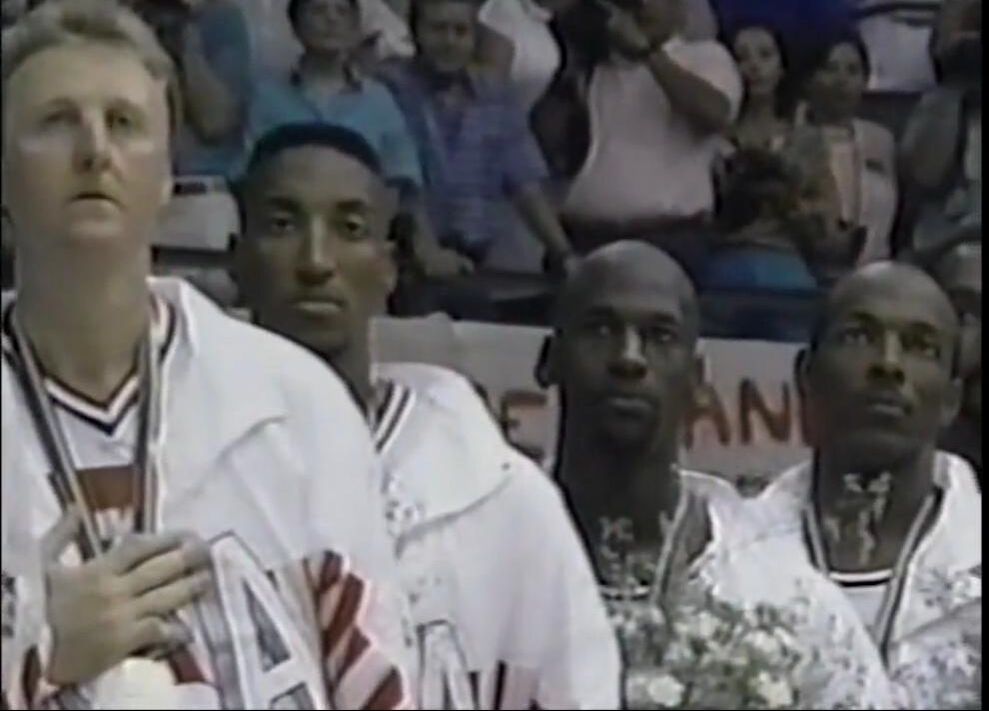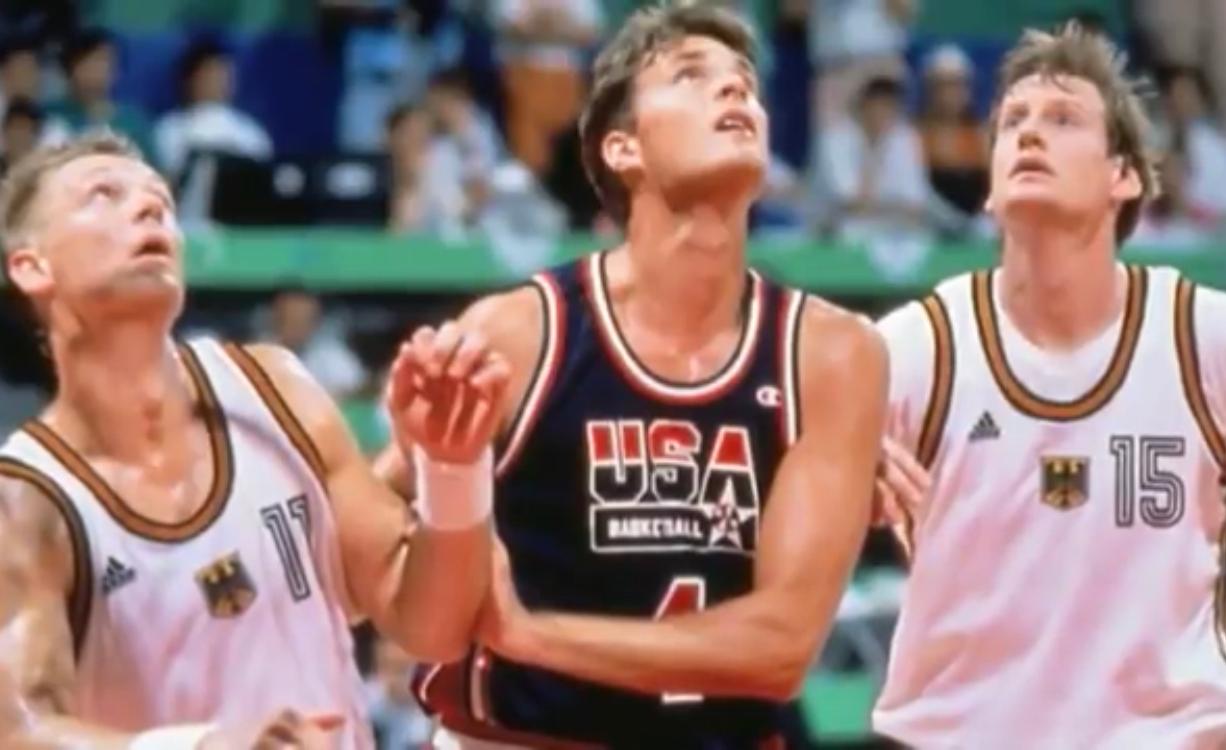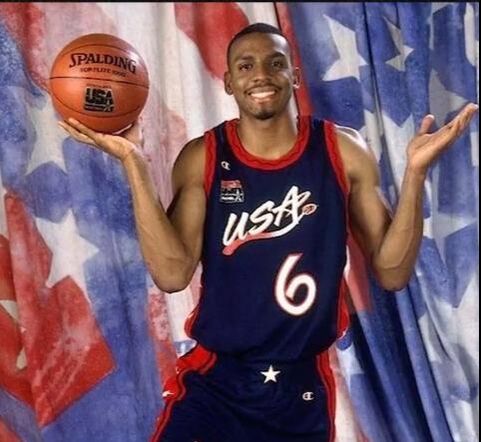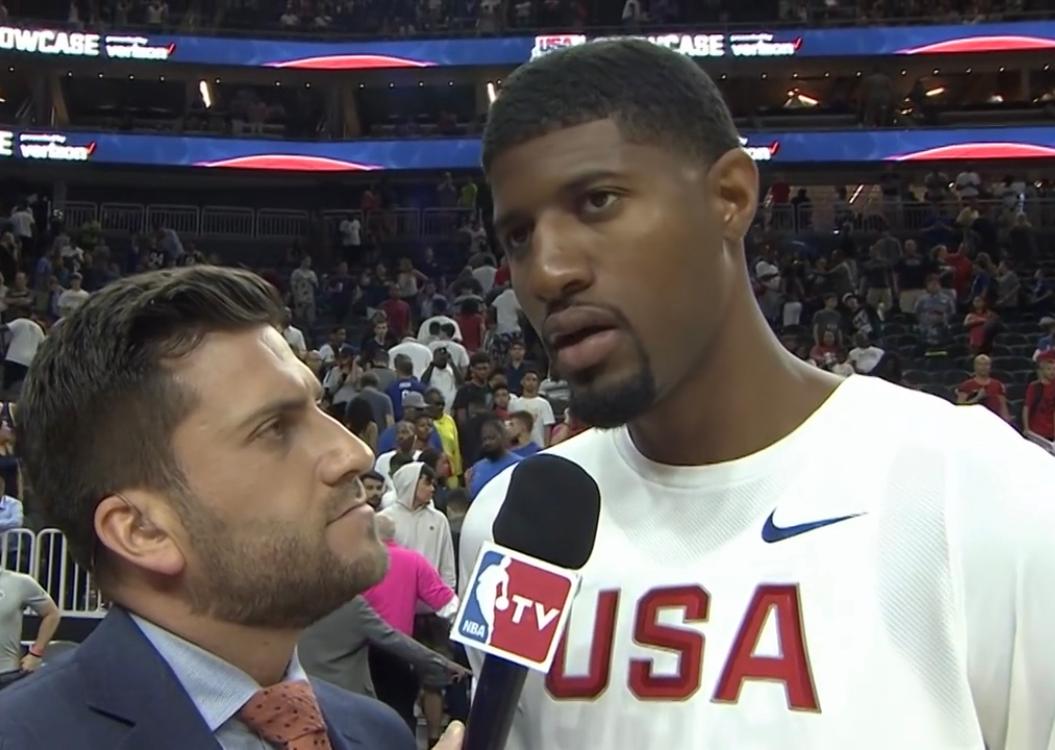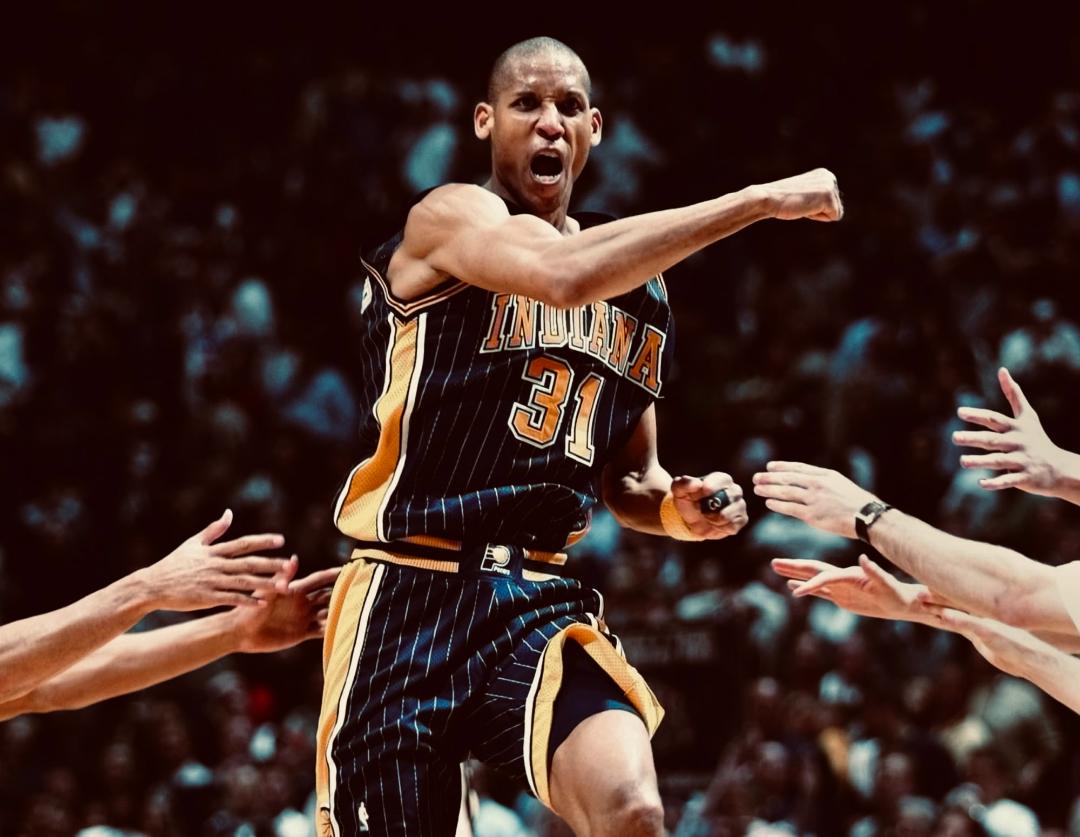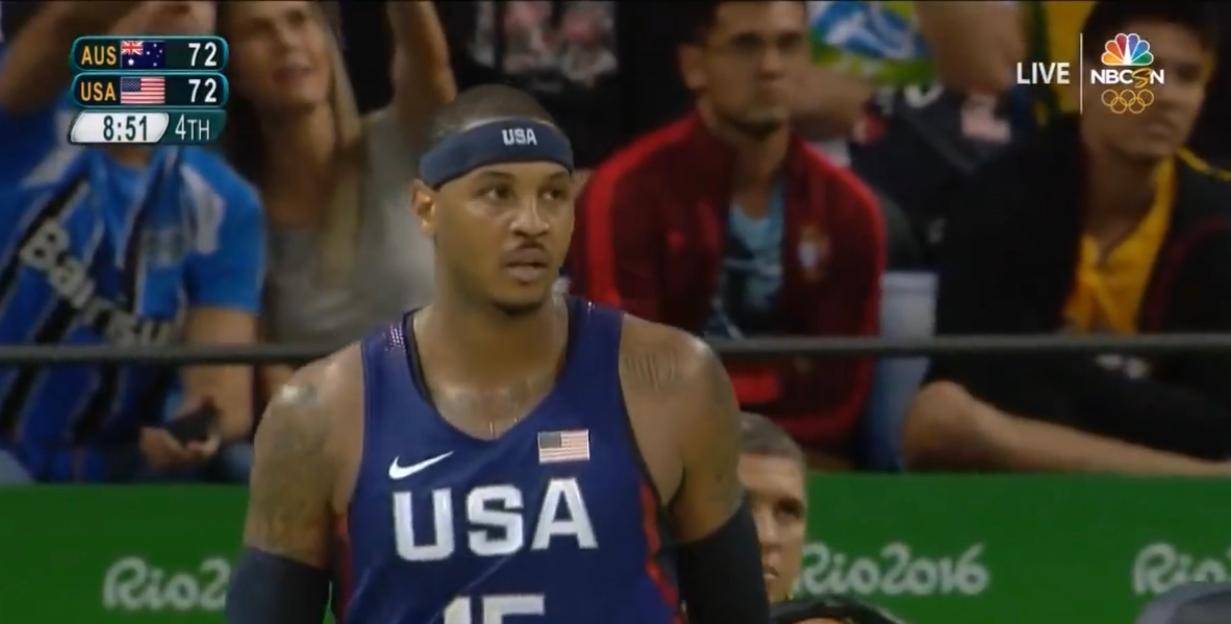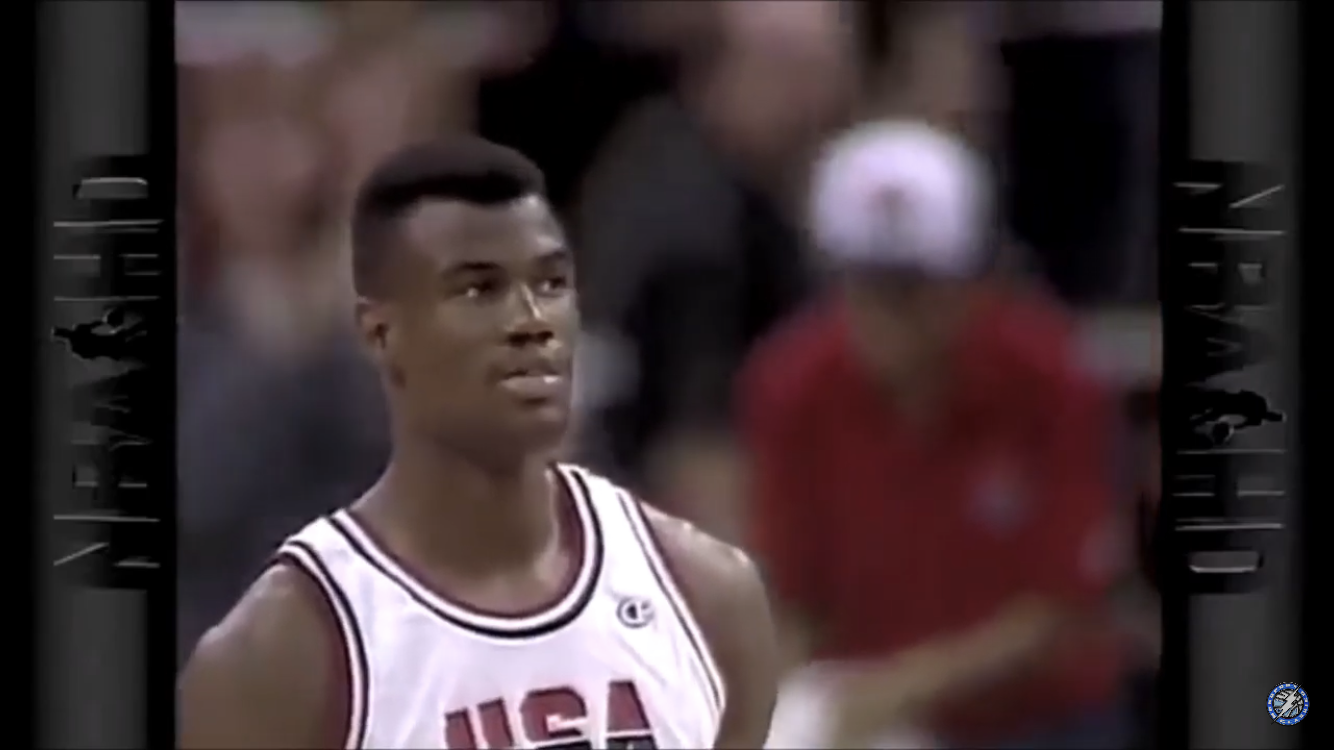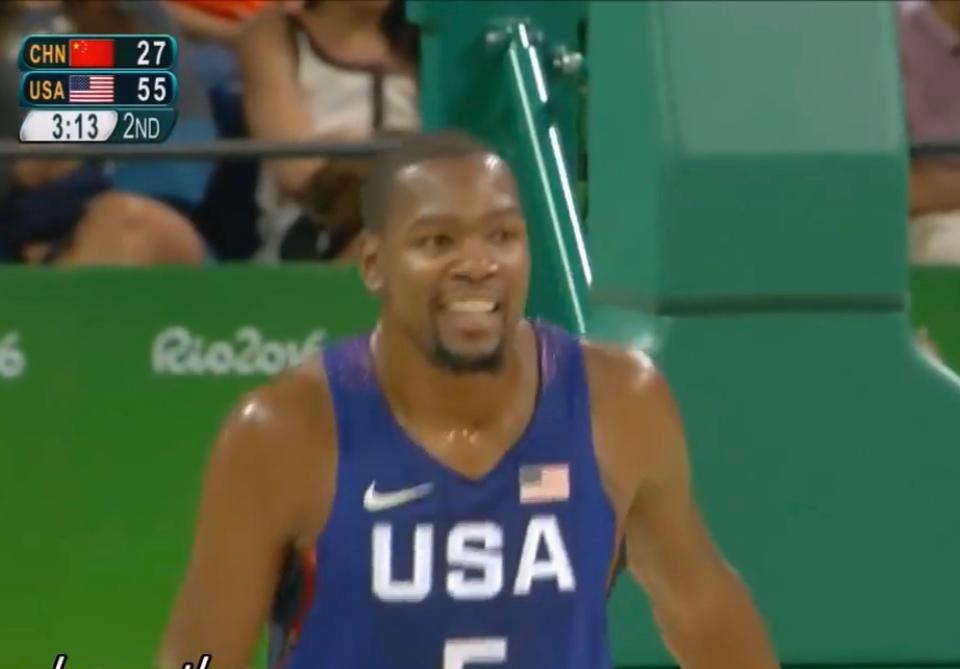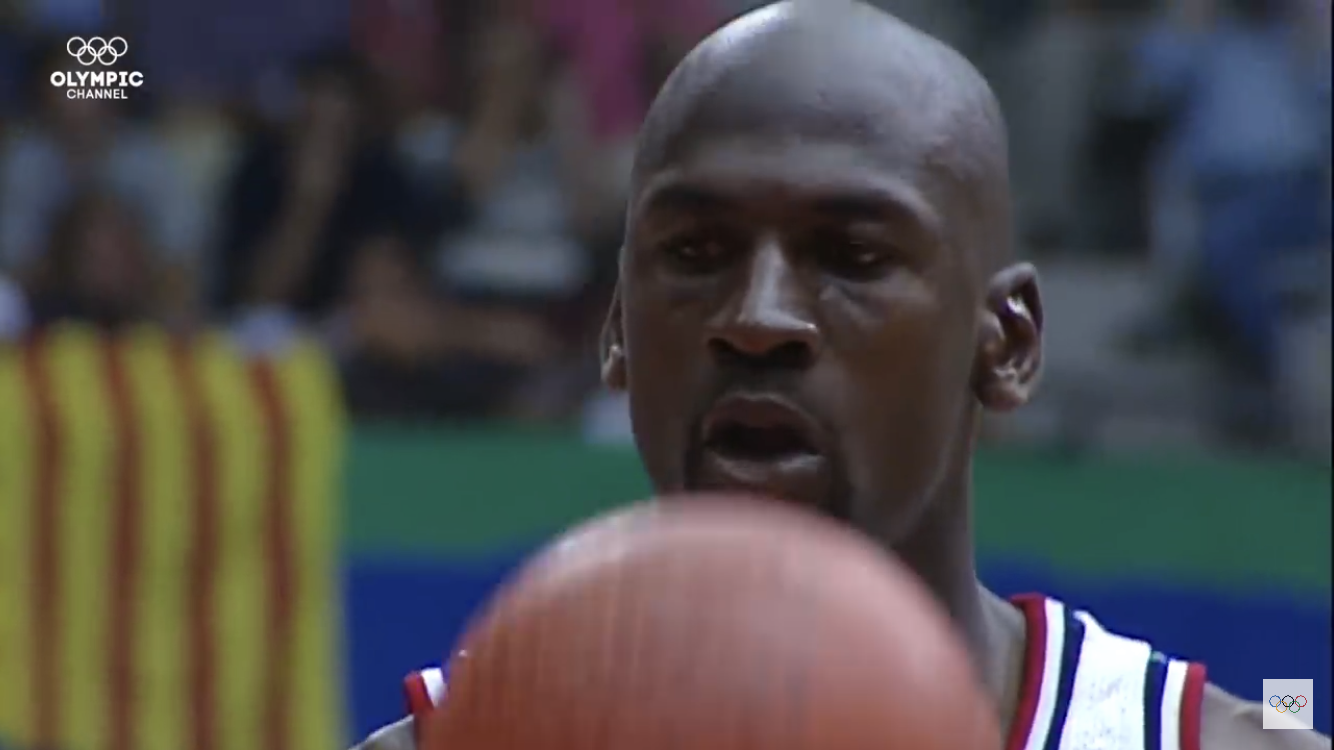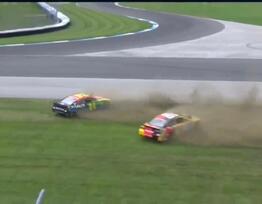 Screenshot Screenshot by Julian Spivey In 20 years watching the sport of NASCAR I had never seen a bigger shitshow than the end of this past weekend’s inaugural Cup Series race at the Indianapolis Motor Speedway road course. It went from infuriating to borderline hilarious quickly but was a blackeye upon the sport. Most of the race was fine, nothing too special, especially with Kyle Larson stinking up the show in the third and final stage of the race with his dominance, but then with about five laps to go all hell broke loose. Shortly after a restart on lap 77 the No.19 Joe Gibbs Racing Toyota driven by Martin Truex Jr. ran over a curb in Turn 6 of the racetrack sending debris, likely from his car but also from the curb, flying across the track. NASCAR officials failed to throw a caution for the debris and on the next lap the hell broke loose when the fourth place car, the No. 24 Hendrick Motorsports Chevrolet of William Byron drove over the same curb, now damaged, and spun through the grass and into a tire barrier. The fifth place No. 18 Joe Gibbs Racing Toyota driven by Kyle Busch did the same. Behind them the No. 22 Penske Racing Ford of Joey Logano piled into the tire barrier the hardest of all the cars. The No. 99 Trackhouse Racing Chevrolet of Daniel Suarez, the No. 20 Joe Gibbs Racing Toyota of Christopher Bell and the No. 37 JTG Daugherty Racing Chevrolet of Ryan Preece would all do the same. All in all, about 10 cars wrecked or suffered damage doing the exact same thing – driving over the damaged curb. The curb had been run over plenty of times over much of the race and was even repaired at least once before during the race, but I can’t help but feeling most of the problem is the drivers hitting the curb more so than the curb being there. The curb is there to dictate the driving line through the turn, so the drivers don’t cut the turn short and use it basically as a straightaway. It’s not intended to be hit, but drivers have figured out that they can run a bit faster through the area of the track by essentially putting a wheel over it and cutting it a bit. So, I’m mostly blaming the drivers here for hitting an object meant to be a barrier and not the racing surface, but also must acknowledge – once again – NASCAR’s failure to throw the caution when Truex’s car initially damaged the curb and threw debris upon the track. It’s one of several inconsistent and head-scratching officiating moments from the sport this season. After the 10-car incident NASCAR removed the damaged curb, which effectively changed the course from the 90 or more percent of the event that had already been run, but honestly what else could or should they have done as they were merely preparing for a two-lap shootout finish. While NASCAR removed the damaged curb, they left another long horizontal curb that was to the side of it on the track. I knew it would be the single dumbest thing I’d seen in the sport in a long time if a driver were to hit that piece, which was truly a decent distance away from the intended racing surface, but I also told my wife Aprille, who was watching the race with me, “somebody is going to hit that, you just wait and see, the idiots [I think it was a more colorful name] can’t help themselves.” Sure, enough the green flag is thrown, the field comes around to Turn 6 again and Michael McDowell in his No. 34 Front Row Motorsports Ford is the idiot who basically uses this piece of curbing as a ramp to wreck himself and a few others behind him. What is NASCAR supposed to do at this point with the Indy road course track? Are they supposed to just remove any curbing anywhere near the racing surface so that drivers don’t hit it? If the sport does this, it changes the way the track is driven and makes it easier. Other series, including IndyCar the day before, have competed in races at the track without similar issues. It just seems the drivers in NASCAR are the idiotic ones who can’t figure it out. Anyway, I’ll be shocked if the race has curbing at Turn 6 next year after what we saw on Sunday (August 15), but I don’t believe the sport should make changes – make the drivers learn the track the way it’s supposed to be driven. They need to treat this curb as if it were a wall and you may well end your day in the garage if you hit it. Following these two incredibly dumb cautions that took more than an hour to clean up, more dumbassery would continue as the No. 14 Stewart-Haas Racing Ford of Chase Briscoe was forced off the track on the final restart and drove through the grass and ended up back on the track in first place. He was penalized by NASCAR for cutting the course – something I don’t really think he should’ve been penalized for because he was forced off track and didn’t do it intentionally to gain an advantage. Either way it would’ve been a controversial call for NASCAR. Then after NASCAR penalized Briscoe he spun out the race leader Denny Hamlin, in the No. 11 Joe Gibbs Racing Toyota, in a move that seemed intentional to me, but he would deny any intention in post-race comments to Hamlin and the media. After this melee A.J. Allmendinger, who’s not a full-time driver in the Cup Series, would take the lead in his No. 16 Kaulig Racing Chevrolet and go on to win his second career Cup Series race and his first since a win at Watkins Glen International in 2014. This race was simply not a good look for NASCAR, though I was absolutely shocked to see that 60 percent of fans in a weekly poll held by The Athletic’s Jeff Gluck on Twitter said the road course event at Indy was a “good race.” Maybe they let most of the event overtake what happened at the end or maybe they were just entertained by total chaos.
0 Comments
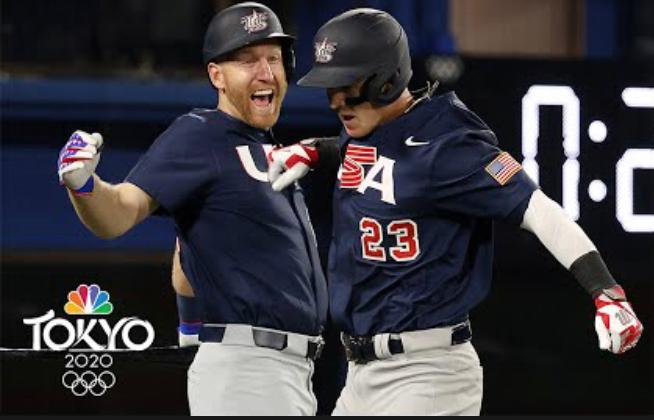 Screenshot Screenshot It’s great seeing baseball back in the Olympic games for the first time since 2008 in Beijing, it truly is great. However, there’s one thing glaringly obvious when watching the Olympic action on the diamond. This is far from the best the world of baseball has to offer and the Olympics are supposed to be the best of the best competing for gold. Baseball is struggling for its future. A 2019 study done by Optimum Sports showed that the average of fans who tune in to nationally televised baseball games is 57. That mean’s the future for baseball is bleak if the sport doesn’t do things to help gain a new and younger audience. One way to potentially gain an audience would be getting the best athletes in the sport into the Olympic games. Now it’s already been announced that baseball (and softball) will not be competing in the 2024 Paris games. That’s truly unfortunate, but baseball is not a very popular game in Europe, which led to the sport being eliminated from the Olympics. It was brought back in 2020 for the Tokyo games because of its mass popularity in Japan. It’s not official yet, but there’s hope that the sport will return to the 2028 games in Los Angeles. Major League Baseball must do everything it can to get big leaguers to those 2028 games. The sport needs the potentially different audience and for baseball to continue being in the Olympic games, as the global sport it is it probably needs more known faces than Tyler Austin and Bubba Starling. Nothing against the current Team USA baseball roster, it’s the best the country could do without MLB players being available, but it’s a mixture of minor leaguers (most who aren’t even top prospects) and MLB has-beens like Todd Frazier, Edwin Jackson and David Robertson wanting to go out with an Olympic medal or hoping to catch the eyes of an MLB needing a veteran. Imagine what the Olympic baseball tournament could be with Mike Trout, Mookie Betts and Jacob deGrom representing the USA. Imagine if the Dominican Republic, one of the great baseball nations in the world, could run out Fernando Tatis Jr. instead of old-timer Jose Bautista. Imagine if the home country of Japan could have had Shohei Ohtani both at the plate and on the mound for these games. It would’ve been must-see TV for baseball fans and could’ve been what it takes to get a few more eyes watching the game for the second half of the season. I’m sorry, but 36-year old Melky Cabrera and journeyman catcher Tim Federowicz aren’t going to get any people excited about the game. It wouldn’t surprise me if MLB fans aren’t even tuning in for these games. What would it take for Major League Baseball to get the superstars into the Olympics? Well, a few obvious concessions would have to be made. First, the players would have to be interested. I think they would be. All Stars of MLB show up and give their all when the World Baseball Classic, last held in 2017, is held. I’m sure they would certainly be as interested in playing for their countries for a coveted gold medal. The biggest issue for MLB would be halting its season for the games. The NBA has always been fortunate enough to have the Summer Olympics held during its natural offseason so pros could compete. The comparison MLB has is the NHL, who in the past has stopped its season for two weeks so its professional hockey players could compete in the Winter Olympics ice hockey tournament. The NHL didn’t do this for the most recent Winter games in 2018 but has announced plans to do so for the 2022 games in Beijing. It might be a bit of a hassle for MLB to fit 162 games into a season while taking two weeks off, but it’s doable. The league could either start the season early, end the season late (or a combination of both). It could also forego the All Star Game every Olympic year and make the break longer. Sure, there’s the risk of injury that might deter players and the teams from wanting them to compete midseason, but again the NHL does this midseason, and it rarely seems to be an issue. Also, I’m sure MLB could see the benefits to the game long term outweigh the negatives. I know MLB players in future Olympic games would be a great thing for the future of the sport, and it would also make the Olympics that much more exciting. MLB, please make it happen by 2028. by Julian Spivey The Olympics changed forever in 1992 when professional athletes were allowed to compete in basketball for the first time at the Summer Olympics. Those 1992 Barcelona games saw the greatest single squad of basketball players ever created in the United States of America team that became known as the “Dream Team.” Eleven of the team’s 12 players would go on to be inducted in the Pro Basketball Hall of Fame and the team itself would also inducted into the hall in 2010. There have been 76 NBA players to compete in the Olympics, included that original Dream Team roster since 1992. Here is a definitive ranking of all 76 … 76. Keldon Johnson I had never heard of Keldon Johnson, who has completed one full NBA season with the San Antonio Spurs, before he was announced as an injury replacement for veteran Kevin Love shortly before the 2020 games. I’m sure he’s mostly there because USA coach Gregg Popovich (coach of the Spurs) had a lot of familiarity with him. 75. Jerami Grant There just weren’t many available big men for Team USA for the ongoing 2020 Tokyo games, which is probably how the team ended up with Detroit Pistons forward Jerami Grant on the roster. He is coming off winning NBA’s Most Improved Player award for the 2020-21 season, but he’s typically not the star power you see at the Olympics. 74. JaVale McGee JaVale McGee was a late addition to the 2020 USA roster when Washington Wizards star Bradley Beal contracted COVID-19 and had to leave the team and the team decided to add another big man instead of a guard. McGee has won three of the last five NBA championships with the Golden State Warriors and Los Angeles Lakers, but the current Denver Nuggets veteran has spent a lot of his career as a reserve. 73. Emeka Okafor The state of the 2020 USA roster has moved Emeka Okafor up the ladder a bit when it comes to this list. He would’ve been dead last prior. Okafor was a big on that 2004 bronze-winning team at the Athens Olympics that a lot of people would like to forget about. He had a rather short NBA career that’s biggest highlight was winning NBA Rookie of the Year in 2005. 72. Harrison Barnes Harrison Barnes is our first gold medalist on this list winning it all at the 2016 Rio de Janeiro games with Team USA. He was a good no. 4 player on the Golden State Warriors first dynasty championship in 2015 but left shortly after for the Dallas Mavericks and has rarely been heard from since. He’s currently on the Sacramento Kings, which is apparently still an NBA franchise. 71. Tayshaun Prince Tayshaun Prince was a member of the 2008 Beijing Olympic “Redeem Team.” Mostly known for his defense that earned him four consecutive All-NBA Defensive Second Team honor, he was also a champion early on in his NBA career with the Detroit Pistons. Prince is one of the few USA Olympians who never made an NBA All Star Game in his career. 70. Bam Adebayo Bam Adebayo is the big that will likely see the most playing time on Team USA at these 2020 Tokyo Olympics. The Miami Heat All Star has made the NBA’s All-Defensive Second Team the last two years running. Adebayo is likely a guy who will jump some of these names ahead of him in the future. 69. Tyson Chandler Tyson Chandler may seem like an odd name on this list, but he was a member of the 2012 London gold-winning roster shortly after he helped the Dallas Mavericks win their only NBA title in 2011 and was the NBA’s Defensive Player of the Year winner in 2012. 68. Richard Jefferson Some may just remember Richard Jefferson as a key reserve on LeBron James’ title-winning Cleveland Cavaliers team at the end of his NBA career, but he was quite the player for New Jersey Nets in the early days of his career before he became a journeyman. He was a member of the 2004 Athens team that struggled to a bronze medal. 67. Zach LaVine Like Bam Adebayo before him, Zach LaVine is a name that’s sure to surpass some of the guys that are currently ranked above him in the future. LaVine is making his Olympic debut at Tokyo and can be a big scorer for the team if he can find the ball enough on a team that features Kevin Durant, Damian Lillard, Devin Booker and more. 66. Steve Smith Steve Smith is likely one of the forgotten players on the 2000 Sydney Olympics gold medal-winning basketball team on a roster that included future Hall of Famers like Kevin Garnett, Jason Kidd, Gary Payton and Ray Allen, but he wasn’t long off a 1998 NBA All Star appearance with the Atlanta Hawks, whom he had the best years of his career with before becoming a bit of a journeyman reserve, including a spot on the 2003 NBA champion San Antonio Spurs. 65. Christian Laettner Christian Laettner was the water boy for the 1992 Dream Team at the Barcelona Olympics. No, he wasn’t, but honestly, he as well should’ve been. As a then college star at Duke, he was the odd man out on the Dream Team and is the only player on that roster who wasn’t inducted into the Naismith Basketball Hall of Fame as a player, he however is inducted as a member of the Dream Team. He was an NBA All Star in 1997 with the Atlanta Hawks, but he never lived up to his college hype in the pros. You won’t see another member of that original Dream Team for another 30-plus spots. 64. Antonio McDyess Antonio McDyess is probably a flash from the past for many of us. He made one NBA All Star team in 2001 as a member of the Denver Nuggets and was on the All-NBA Third Team in 1999. I don’t remember a whole lot about the remainder of his career. He was probably the least remembered member of the 2000 Sydney gold-winning team. 63. Allan Houston I mostly remember Allan Houston as one of the best sharpshooters in the NBA in the late ‘90s and early ‘00s for the New York Knicks. Houston was an All Star in consecutive years for the Knicks in 2000 and 2001 and part of the 2000 Sydney Olympics gold medal squad. He finished his NBA career averaging 17.3 points per game. 62. Vin Baker Do y’all remember that Vin Baker was named to four consecutive NBA All Star teams in the mid-to-late ‘90s? I didn’t either. But he had some truly good seasons with both the Milwaukee Bucks (which he’s currently an assistant coach for) and Seattle SuperSonics and averaged 15 points per game for his career. He helped Team USA win gold at the 2000 Sydney Olympics. 61. Carlos Boozer Carlos Boozer made a couple of NBA All Star teams in the late ‘00s with the Utah Jazz and averaged 16.2 points per game and 9.5 rebounds per game in a solid pro career. Boozer was a member of the disappointing 2004 bronze-winning team at the Athens Olympics and then came back to be part of the “Redeem Team” in 2008 at the Beijing Olympics that won gold. He was one of only four players from 2004 to be a part of the Redeem Team along with superstars LeBron James, Carmelo Anthony Dwyane Wade. 60. Michael Redd Michael Redd was one of the NBA’s best sharpshooters in the early-to-mid-‘00s before his career was cut short due to nagging injuries. The Milwaukee Bucks 2004 All Star was a member of the 2008 Beijing Olympics “Redeem Team” and averaged 19 points per game over his pro career. 59. Shareef Abdur-Rahim Shareef Abdur-Rahim is a blast from the past. Abdur-Rahim was a member of the 2000 Sydney Olympics gold-medal winning team. He was an All-Star in the 2002 season with the Atlanta Hawks and was the face of the Vancouver Grizzlies before that in the late ‘90s. Abdur-Rahim averaged just over 18 points per game for his NBA career. 58. Jayson Tatum Jayson Tatum is a guy certainly to move up this list in the coming years. The 23-year-old Boston Celtics All Star is making his Olympic debut this year at the 2020 Tokyo games. Tatum is coming off a career high 26.4 points per game for the Celtics. 57. Khris Middleton & 56. Jrue Holiday I’m going to do Jrue Holiday and Khris Middleton together as they’re just coming off an NBA championship as teammates on the Milwaukee Bucks. In fact, Holiday and Middleton became the first players in NBA/Olympics history to compete in the NBA Finals and Olympics in the very same week. Hopefully these two guys won’t be too wasted from a long NBA season and playoffs as they make their Olympic debuts in Tokyo. 55. Lamar Odom Lamar Odom had a solid NBA career that included back-to-back NBA titles with the Los Angeles Lakers as probably the team’s third best player. He was also the league’s Sixth Man of the Year with the team in 2011. Surprisingly Odom never made an All Star team and his 13.3 points per game over his career are likely one of the lowest for any Team USA member. He was on the bronze-winning 2004 Athens team. 54. Stephon Marbury Remember when Stephon Marbury was the next big thing in the NBA, but never quite lived up to his expectations? That also kind of sums up his Olympic career, as he only made an appearance on the disappointing Olympic bronze-winning team in Athens, the only Olympics in which Team USA hasn’t won gold since pros began playing in the 1992 Barcelona games. 53. DeAndre Jordan I remember remarking in 2016 during the Rio de Janeiro that DeAndre Jordan, who was on that year’s Team USA squad, had to be one of the few NBA Olympians ever to never make an All Star team (which was honestly a bit surprising). He would end up making the All Star Game the next NBA season. He would go on to win gold in Rio. 52. Devin Booker Devin Booker is making his Team USA Olympic debut at these 2020 Tokyo Games. He joined Milwaukee Bucks players Khris Middleton and Jrue Holiday as the first NBAers to ever play in an NBA Finals game and Olympics game in the same week. The Phoenix Suns sharpshooter is coming off a season in which he scored 25.6 points per game. 51. Anfernee Hardaway Anfernee “Penny” Hardaway was well on his way to a Hall of Fame NBA career before injuries took hold of him at a still young age. He was such a superstar in his early career with the Orlando Magic teaming with Shaquille O’Neal that he even had a superstar alter ego in commercials named Little Penny! He was on the 1996 Atlanta gold medal-winning team. 50. Deron Williams Deron Williams’ NBA superstar light seemed to burn quickly, but he was one of the game’s best point guards for about a half decade from the late ‘00s with the Utah Jazz and early ‘10s with the New Jersey/Brooklyn Nets. He was good enough to be a part of two gold medal-winning USA basketball squads at the 2008 Beijing games and the 2012 London games. 49. Shawn Marion Shawn Marion had a lot of great years with the Phoenix Suns in the ‘00s becoming a four-time All Star over a five-season span from 2003-2007. He would later become an important role player on the NBA champion 2011 Dallas Mavericks. His Olympic career was not so strong as he was only a member of the 2004 Athens bronze-placing team. 48. Amar’e Stoudemire Amar’e Stoudemire was a special big man for the Phoenix Suns from 2002-2010, including one year in 2007 were he made the NBA’s All-First Team. But like so many big men injuries would take their toll on his later in his career. The six-time All Star was a member of the disappointing bronze-winning team at the 2004 Athens games. 47. Andre Iguodala Andre Iguodala has had a very good NBA career as both his team’s best player, as he was on the Philadelphia 76ers early on in his career, and an incredibly important role player and mentor on one of the greatest dynasties in NBA history, as he was on the Golden State Warriors winning three titles from 2013-2019, including 2015 where he was NBA Finals MVP. Iguodala was a member of the gold medal winning team in 2012 at the London games. 46. Tim Hardaway Five-time NBA All-Star Tim Hardaway was one of the old veterans on the 2000 Sydney gold medal-winning squad. He had a strong career, mostly with the Golden State Warriors and Miami Heat in the ‘90s that saw him make the All-NBA First Team in 1997 and the All-NBA Second Team three times. 45. Draymond Green Draymond Green’s leadership and tenacity on defense were such a crucial part of the Golden State Warriors dynasty a few years ago. He’s the kind of personality you just want to have on your Olympic roster, even if there are flashier players and guys who put up much bigger numbers at the basket. The three-time NBA All Star and 2017 Defensive Player of the Year won gold at the 2016 Rio de Janeiro games and has returned for the 2020 Tokyo games. 44. DeMarcus Cousins One of the best centers in the NBA over the last decade, DeMarcus Cousins was a member of the 2016 Rio de Janeiro gold medal-winning Team USA team. Cousins is a four-time All Star and two-time All-NBA second team member who unfortunately looks like his best years are behind him due to injury troubles. 43. Kyle Lowry & 42. DeMar DeRozan Even though they are no longer teammates (though rumors say both are interested in reuniting), it always seems like Kyle Lowry and DeMar DeRozan belong together. Lowry and DeRozan were the heart and soul of the Toronto Raptors from 2012-2018 (and it’s unfortunate DeRozan wasn’t a member of the Raptors championship team) and are close friends. DeRozan is a four-time NBA All Star and Lowry has been an All Star six times. The two teamed up on the gold winning Rio de Janeiro squad in 2016. 41. Jimmy Butler As you can probably tell by now this is the segment of the list for much of the 2016 Rio de Janeiro squad. Jimmy Butler was another member of that Team USA group. Butler has been a stud for a good half decade now with both the Chicago Bulls and the Miami Heat both on offense and defense making five All Star teams and has been selected to five All-NBA defensive second teams. 40. Mitch Richmond Mitch Richmond is the first Pro Basketball Hall of Famer we’ve gotten to on this list thus far. Richmond was a six-time NBA All Star, all consecutively from 1993-1998 with the Sacramento Kings, which retired his No. 2 jersey. He averaged 21 points per game for his career. Richmond was on the 1996 Atlanta Olympics gold medal-winning team. He was also a bronze medalist at the 1988 Seoul games before pros were allowed to compete in the Olympics. 39. Kevin Love Kevin Love has kind of become a forgotten man lately in the NBA due to injury struggles and being on the lowly Cleveland Cavaliers post-LeBron James, but the guy’s likely going to be a Hall of Famer. The five-time NBA All Star was a member of the 2012 London gold medal-winning roster and was supposed to return to these Japan game as veteran leadership but was forced out last second due to withdrawing with a nagging calf injury. 38. Damian Lillard Damian Lillard is likely going to move up this list quite a bit. The sharpshooter from the Portland Trail Blazers is making his Olympic debut at these Japan 2020 games after having to miss the 2016 Brazil games due to injury. The six-time NBA All Star has averaged 24.7 points per games for his career. 37. Paul George Paul George has been a force to be reckoned with in his NBA career both offensively and defensively making the NBA’s All-NBA First team in 2019 and the All-Defensive First Team twice. The seven-time NBA All Star won gold with Team USA in the 2016 Rio de Janeiro games, which must have been truly special for him after suffering a devastating leg injury for Team USA at the 2014 FIBA Basketball World Cup in qualifications for those Olympics games. 36. Klay Thompson Klay Thompson is the only half of the Splash Brothers to ever appear in an Olympics (yes, surprisingly Stephen Curry has not played in an Olympics yet). Thompson has been an integral part of the Golden State Warriors dynasty of the past decade in the NBA and has made five All Star teams. Thompson won gold at the 2016 Rio de Janeiro games. 35. Kyrie Irving Seven-time NBA All Star Kyrie Irving was truly riding high in 2016 when he won a gold medal at the Rio de Janeiro games shortly after being the Robin to LeBron James’s Batman in the Cleveland Cavaliers shocking championship run over the Golden State Warriors. 34. Vince Carter There’s no doubt in my mind that Vince Carter is responsible for the greatest image in Olympic Team USA history when he took flight in a 2000 Sydney Olympics game against France and leapt over France’s 7’2’’ center Fredric Weis. It’s a dunk the French Media dubbed “le dunk de la mort” or “the dunk of death.” Carter would help Team USA win gold in Sydney. 33. Grant Hill Grant Hill is a Pro Basketball Hall of Famer, but it’s unknown just how special of a career he truly could’ve had in the NBA had injuries not taken its toll on his body. The early part of his career with the Detroit Pistons he was a force to be reckoned with. The seven-time NBA All Star was an All-NBA First Team member in 1997 and helped Team USA win gold at the 1996 Atlanta Olympics. 32. Chris Bosh Chris Bosh, a 11-time NBA All Star (which you can kind of forget how great he was until you see that) and two-time NBA champion with the Miami Heat, was part of the 2008 Beijing Redeem Team after the 2004 Olympic bronze disappointment. The Pro Basketball Hall of Famer finished his career – which was shortened by blood clot issues – averaging 19.2 points per game and 8.5 rebounds per game. 31. Chris Mullin Chris Mullin is a Pro Basketball Hall of Famer, but when it comes to the original members of the Dream Team, he’s one that kind of gets a bit forgotten. The five-time NBA All Star from 1989-1993 always seems to get the short-end of the stick when it comes to remembering greats of the late ‘80s and early ‘90s, probably because he was never on a real title contender. He won gold in Barcelona in ’92 but was already a gold medalist by then having won gold in the 1984 Los Angeles games while a collegiate standout at St. John’s. 30. Alonzo Mourning Alonzo Mourning had both a great career and story in the NBA. Mourning was a seven-time All Star for the Charlotte Hornets and Miami Heat and one of the best big men in the game in the late ‘90s and early ‘00s. In late 2005 Mourning was going to announce his retirement due to kidney diseases. Luckily his cousin was a match, Mourning received a transplant and made it back to the league where he’d play an integral role off the bench for the Heat in the team’s 2006 championship season. Mourning won gold with Team USA at the 2000 Sydney games. 29. Clyde Drexler Clyde “The Glide” Drexler – one of the all-time greatest nicknames in basketball history. Drexler was one of the dominant scorers in the NBA in the late ‘80s and early ‘90s with the Portland Trail Blazers. He would win the only NBA All-First team spot of his career in 1992 shortly before winning gold on the Dream Team with Team USA in the ’92 Barcelona games. He would go on to win an NBA title with the Houston Rockets in 1995, teaming with Hakeem Olajuwon, who he played with as a Dream Team member. 28. Ray Allen Ray Allen is the all-time leader in made three-point baskets in NBA history, at least for a bit longer until Golden State Warriors sharpshooter Stephen Curry surpasses him. The three shot has become as big a part of Olympic and international basketball as it has in the NBA and Allen was that guy for Team USA winning gold at the 2000 games in Sydney. 27. Dwight Howard Dwight Howard was likely the last great big man in the NBA with the traditional big man dominant in the inside and post style of play. The league effectively changed midway through his career and sort of made his style of play irrelevant, but we mustn’t forget how truly dominant he was in his tenure with the Orlando Magic. The eight-time NBA All Star and three-time Defensive Player of the Year won gold with the Redeem Team at the 2008 Beijing games. 26. Anthony Davis Anthony Davis is only 28 years old, so he could easily find himself moving further up this list in the years to come if injuries don’t completely derail his career, as they often seem to try to do. The Los Angeles Lakers big man, who can also drain a basketball from downtown, was a gold medalist on the 2012 London Team USA squad without having yet played an NBA game. 25. James Harden Brooklyn Nets superstar James Harden, the NBA’s Most Valuable Player in 2018, was a member of the gold medal winning team in London in 2012 when he was still known a bit more as a role player for the Oklahoma City Thunder rather than the torch you for 50 points star, he’d become with the Houston Rockets. The nine-time NBA All Star and three-time scoring champion was supposed to join his Nets teammate Kevin Durant in the current 2020 Tokyo games but was a last second withdrawal due to injury he sustained in the 2021 NBA Playoffs. 24. Reggie Miller I can’t help but wonder how much trash talking Reggie Miller did in the 1996 Olympic games in Atlanta to international players and how much of it those guys understood. One of the greatest long-ball shooters in NBA history the Indiana Pacers legend won gold in Atlanta, where he led the team in scoring with 11.4 points per game. 23. Chris Paul Chris Paul might still be without an NBA title, but he is one of a handful of guys to win two gold medals in Olympic play having done so with the 2008 Beijing team and the 2012 London team. The 11-time NBA All Star has been one of the game’s best point guards throughout the entirety of his career and his tenacity on the court was a major gain for Team USA. 22. Gary Payton I can’t help but wonder how many international players at both the 1996 Atlanta Olympics and the 2000 Sydney Olympics had Gary Payton get under their skin with both his trash talk and ferocious defense. The nine-time NBA All Star and 1996 Defensive Player of the Year winner seems like the absolute perfect guy to have on your squad when playing the world’s best. 21. Russell Westbrook Russell Westbrook is a walking triple-double. The nine-time NBA All Star who was just traded to the Los Angeles Lakers to help former a super team with Lebron James and Anthony Davis won gold with Team USA at the 2012 London games, where he somehow played less minutes than Deron Williams. 20. Carmelo Anthony If I were ranking this list by performance solely at the Olympic games than there’s a possibility 10-time NBA All Star Carmelo Anthony might be all the way at the top of this list. Anthony has won more gold medals than any player in Olympic basketball history with three (2008 Beijing, 2012 London and 2016 Rio de Janeiro) he also won bronze on the 2004 Athens team and until Kevin Durant surpassed him at these 2020 Tokyo games was the all-time leading scorer in Olympic history for Team USA. 19. Jason Kidd Jason Kidd is arguably the second greatest natural point guard to ever compete in the pro era of the Olympics for Team USA behind John Stockton. The 10-time NBA All Star, who is ranked second all-time in NBA assists behind only Stockton, won gold with Team USA at both the 2000 Sydney Olympics and the 2008 Beijing Olympics. 18. Scottie Pippen Scottie Pippen is somewhat unfairly known as the greatest “second fiddle” in NBA history as his Chicago Bulls teammate Michael Jordan received all the accolades, but he was the type of player – who gave it all on defense and could get you a bucket at will – that Team USA really needed. The six-time NBA champ and three-time All-NBA First Team member won gold with the original Dream Team in Barcelona in ’92 and then came back four years later in Atlanta to repeat. Pippen was one of five players from the original Dream Team to return in ’96. 17. Patrick Ewing The sheer height of both Patrick Ewing and David Robinson on the original 1992 Dream Team must have scared the bejesus out of some of their opponents. The New York Knicks 11-time All Star had already won Olympic gold in 1984 in Los Angeles as a collegiate star at Georgetown before coming to do so again as an NBA star. Ewing scored 9.5 points per game for Team USA while splitting time equally with Robinson. 16. Dwyane Wade Dwyane Wade always had the good leadership role during his 13-time All Star career in the NBA, mostly with the Miami Heat. That made him an integral member of Team USA. He was on that disappointing 2004 Athens bronze winning team, but then came back in Beijing in 2008 as a member of the Redeem Team. The three-time NBA champion eighth all-time in Team USA scoring in Olympic history. 15. Allen Iverson One of the more exciting players to ever suit up for Team USA in Olympic action is Allen Iverson. The 11-time NBA All Star and 2001 league Most Valuable Player somewhat surprisingly made one Olympic appearance during his career and it was somewhat unsurprisingly as part the bronze team in Athens. At 13.8 points per game, Iverson was that team’s leading scorer, something he was very used to being for his teams. 14. Charles Barkley The 1992 Dream Team featured some of the greatest of the greats in NBA history. Top 10 all-time NBA players like Michael Jordan, Larry Bird and Magic Johnson. It also featured Karl Malone, who’s second all-time in NBA points. But one of my favorite Dream Team trivia answers is that it was Charles Barkley who led the team in scoring in the Barcelona games with 18 points per game. This was at the height of Barkley’s best years and the next year he’d win NBA Most Valuable Player and lead his Phoenix Suns to the NBA Finals. 13. David Robinson David Robinson was a member of those first two Dream Team squads of the 1992 Barcelona and 1996 Atlanta games and up until being surpassed by more modern and still active NBA superstars like Kevin Durant, Carmelo Anthony and LeBron James was the all-time Team USA scorer (he’s still fourth all-time with 270 points). 12. Kevin Garnett It’s somewhat surprising that Kevin Garnett, one of the league’s best players from the mid-‘90s throughout much of the ‘00s, only competed in one Olympic games – he won gold at the 2000 Sydney games. The 15-time NBA All Star and 2004 league Most Valuable Player was the second leading scorer on that squad (behind Vince Carter) at 10.8 points per game. He also led the squad with nine boards a game. 11. John Stockton John Stockton is the quintessential NBA point guard and his all-time NBA records in careers assists and steals are likely to never be broken. Stockton was on the original ’92 Dream Team, but only played in four games of that tournament as he suffered a broken foot against Canada in the games. He would return for the ’96 Atlanta games, where he would get the least number of minutes of the tournament, but also somehow led that squad in blocked shots. 10. Kevin Durant It’s honestly probably only a matter of time before Kevin Durant climbs into the top five on this list. Durant recently became the all-time leading scorer in Team USA Olympic history at these 2020 Tokyo games and is hoping to lead the team to his third career gold medal – he won gold at the 2012 London games and the 2016 Rio de Janeiro games – but 2020 may prove to be a harder task. 9. Karl Malone Karl Malone is second all-time in NBA history in scoring. On the original 1992 Dream Team at the Barcelona games Malone was third in scoring (behind Charles Barkley and Michael Jordan) averaging 13 points per game enroute to winning gold. When he returned for the ’96 Atlanta games he was a little further down the scoring line with 8.4 points per game also on the way to winning gold. 8. Kobe Bryant The late, great Kobe Bryant had surprisingly avoided Team USA at the Olympics for the first half of his career, not appearing in either the 2000 or 2004 games, but after the country’s disappointing run to bronze at Athens in 2004 it was up to him and some of the game’s other superstars to ensure gold went back to the United States. Bryant was third on Team USA in scoring with 15 points per game winning gold in Beijing in 2008 and fourth on the team in scoring when winning gold in 2012 in London with 12.1 points per game. 7. Shaquille O’Neal I’m somewhat surprised that Shaquille O’Neal only competed in one Olympic games – winning gold with Team USA in Atlanta in 1996. O’Neal was the most dominant big man in the NBA for a good decade or more and I’m sure he was throwing around international players like ragdolls at those games. The four-time NBA champion averaged 9.3 point per game in Atlanta, and was outscored by David Robinson, who played fewer minutes at the center position. That ’96 team had a triple-headed monster at center with Shaq, Robinson and Hakeem Olajuwon. 6. Hakeem Olajuwon Hakeem “The Dream” Olajuwon was born in Nigeria but became a naturalized American citizen in early 1993. Therefore, Olajuwon was a member of the Team USA squad at the ’96 games in Atlanta but wasn’t on the original Dream Team four years before. Olajuwon split his center minutes fairly evenly with Shaquille O’Neal and David Robinson at the ’96 Olympics and averaged five points and three rebounds per game. 5. Larry Bird Larry Bird was past his prime due to back problems when he joined the original Dream Team in 1992 at the Barcelona games. In fact, he’d play for Team USA in those games after competing in his final NBA season, though he didn’t announce his retirement until after the Olympics. However, you truly couldn’t have a “Dream Team” without Bird, who scored 8.4 points per game enroute to winning gold. 4. Magic Johnson Like Larry Bird, Magic Johnson’s NBA career was over before he became a member of the 1992 Dream Team (though he did return briefly in 1996). It was a bit controversial when Johnson was announced to the team because he had retired the year before after announcing he was HIV-positive and at the time not everyone knew what that meant, especially if he were injured and bleeding. The three-time NBA Most Valuable Player would compete in six of Team USA’s pro debut at the games and averaged eight points per game and 5.5 assists per game. Due to both Johnson and John Stockton missing games in that tournament Scottie Pippen became the team’s primary ballhandler. 3. Tim Duncan Tim Duncan’s Team USA Olympic career was disappointing, as the only Olympic games he ever competed in was those 2004 Athens games when Team USA failed to win the gold medal for the only team (thus far) since NBA players were allowed to compete at the games. But remember this list isn’t solely based on Olympic careers. Duncan is likely the greatest power forward in NBA history leading the San Antonio Spurs to five championships and winning league Most Valuable Player in back-to-back years in 2002 and 2003. Duncan was second on that Athens squad in scoring at 12.9 points per game and led the team in rebounding with nine per game. 2. LeBron James These top two choices are just going to be common sense. LeBron James has two gold medals from the 2008 Beijing games and 2012 London games and won bronze in 2004 in Athens. His 273 points are third most in Team USA Olympic history behind Kevin Durant and Carmelo Anthony. James is a four-time NBA champ (incredibly with three different teams), a four-time NBA Most Valuable Player and a 17-time All Star. 1. Michael Jordan Most people consider Michael Jordan to be the greatest basketball player that has ever lived. So, of course, he’s going to also top this list of the greatest Olympic NBA players of all-time. The 1992 Dream Team at the Barcelona games was the only Olympics Jordan ever appeared in as a pro, but he had already won Olympic gold at the 1984 Los Angeles games as a collegiate star at North Carolina. The six-time NBA champion and five-time Most Valuable Player was second on the Dream Team in scoring at 14.9 points per game. Let us know what your top 5 would be in the comments!
|
Archives
July 2024
|
